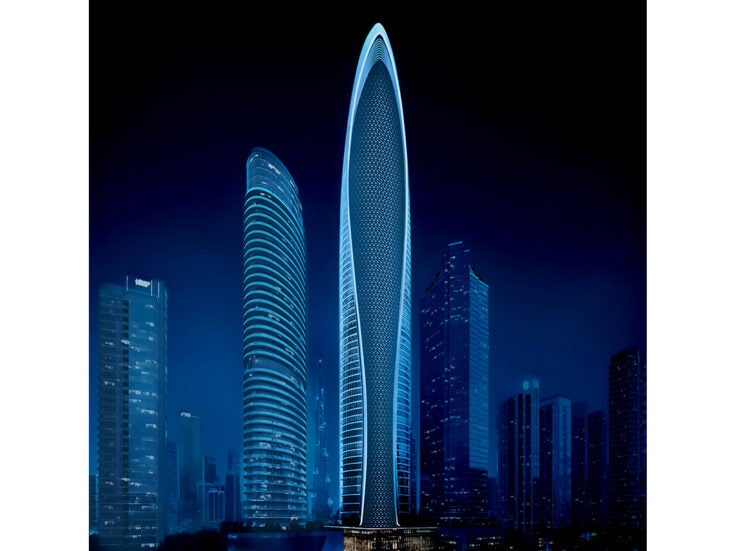Got your head around quantum physics? Now try figuring out the New York real estate market, says Michael Gross
To play off a question sometimes asked by the television personality Barbara Walters, if you were a Manhattan apartment, what type of apartment would you be? Would you be a rental, a co-operative, a condominium, or a residential hotel apartment?
For decades, many New Yorkers – many in the upper classes, at lease – started their lives as the first and ended up as the second. Unless, that is, they had a brief stay in the last, either in between or in their dotage. Mostly, this is because rentals and co-ops have traditionally comprised the bulk of Manhattan’s apartment stock. Nowadays, however, things aren’t so simple.
We all know about rentals, those sometimes mangy sets of rooms, painted flat white, located in less than lovely buildings, ruled by tyrants known as landlords, and cared for by surly, sometimes drunken, superintendents.
Rentals can be colourful. Your neighbour might be a ‘happy ending’ masseuse or a cranky old man who wears only frayed underwear as he take out his garbage just as you, still in your 20s, are trying to suavely unlock your door and guide your soon-to-be latest love within. Please take care not to trip over the bathtub in the kitchen!
Co-ops are more mysterious – at least to anyone not raised in New York. These are buildings owned by private corporations that issue shares of stock and documents called propriety leases, which are attached with invisible strings to apartments available only to those deigned suitable to live in them. The higher the number of shares, the better the apartment.
The best co-ops are grand indeed – mansions in the sky boasting huge rooms. They have floors of teak and mahogany, walls panelled with ancient wood, often ripped from the ancestral homes of European aristocrats with diluted fortunes or gene pools, servants’ quarters larger than most rentals, vast foyers, ballroom-sized parlors, and a large staff of crisply uniformed sentries in their Travertine lobbies – all under the supervision of a quite super super who probably dresses better than you do.
That super and his staff are likely cowed by (if also quietly contemptuous of) their bosses, the co-op equivalent of tyrant landlords, known as board members, who rule their roosts with iron rods. Co-op boards are notorious for regulating renovation and subletting. The former activity is often restricted to the summer months, when neighbours are assumed to be away; the latter is usually strictly verboten.
Boards also pass judgment on those who hope to purchase shares that give them the right to residences. Many still want that, since fully 90 per cent of the grandest buildings in New York (especially the ones usually called pre-World War II, even though it is more accurate to describe them as pre-Depression, for they were almost all begun before 1930) are co-ops. They don’t build ‘em like that any more. So now, consider alternatives.
Hotel apartments are just that: private apartments in hotels that are typically owned by co-operative corporations that have a sideline in renting rooms, usually through hired managers. Since they deliver full hotel services to travellers and owners alike, including a maid and concierge, they are sort of co-ops on steroids.
But also, they are also less exclusive since, quite literally, anyone who can pay the rack rate can sleep next door to the shareholding residents. So they are really relais, even though physically, they resemble chateaux. And the same goes double for the latest wrinkle in hotel residences, fractional condominiums, like those at the renovated Plaza Hotel, which are being sold like vacation timeshares for periods of up to four months a year.
Condominiums, the most popular new style of urban housing, emerged 50 years ago, and joined the upper class in the 1970s, when Olympic Tower on Fifth Avenue was marketed to foreigners and corporations (and especially foreigners buying apartments through corporations) as ultraluxe pied-a-terres. Nowadays, almost every new apartment house in New York is a condo or a rental.
Whereas co-operators own only corporate shares, condomizers own ‘real’ property, their apartments themselves, plus a proportional share of the common areas of the buildings that contain them. So condo owners can get normal mortgages; many co-ops don’t allow borrowing to purchase shares at all, and in those that do, owners must take out standard loans instead, pledging their shares as collateral.
But the biggest difference is that condo associations have little of the tyrannical power of co-operative boards. Owners usually buy condos without approval, even purely for investment, they can sublet and renovate pretty much as they wish, and they can sell to whomsoever they please.
Needless to say, these different lifestyles attract different sorts. Generalising is impossible, but residents of the grand, famous co-ops that line the Upper East Side do have some things in common: they are usually well-to-do, white, and settled. They have to be able to get pas boards that scrutinise their finances, their friends, their jobs, their children, and even their pets.
Co-ops, in their ideal form, are like tightly restricted golf clubs filled with like-minded people. Uptown that means Old Money, the Establishment. ‘Roots and Class,’ says one owner. ‘You just can’t get that in new construction.’ Contemporary condos, even though they can be absurdly luxurious, are more akin to public links. In fact, condo buyers aren’t scrutinised. ‘If you have for noses, 12 ears and $9 million, you’re in,’ says one high-end realtor.
Hotel apartments have never been considered houses of distinction, even though they command high maintenance (the co-op/condo equivalent of rent) to pay for all their services. They sell mostly to wealthy foreigners who only come to New York for short stays, and to older, less self-sufficient, often lonely folks, who depend on the high – almost suffocating – level of service.
There are, however, exceptions trying to prove a new rule. One young businessman with social ambitions began his New York life in a tiny single room in a Fifth Avenue hotel, which offered, at least, a good location. After finding wealth, marrying, and having children but nonetheless being spurned by one the city’s best co-ops, he dug in by trading up, buying and merging several hotel apartments into a grand (if still socially deuzieme) home.
He and his latest wife often posed in it for shelter magazines, hoping, perhaps, to slip-cover necessity with newly-minted cachet. Until they split up, that is.
New money, to be blunt, is what’s filling all the condos being built in Manhattan. ‘They come from under a rock somewhere,’ sniffs one socially-conscious realtor. ‘They don’t know the difference.’ Another thinks most condo purchasers simply ‘don’t want to reveal their finances, whether it’s because they do,’ she pauses meaningfully, ‘or don’t have money.’
Also, she says, ‘it’s the kind of new money that doesn’t give a shit. Young tech people don’t care. They can’t be bothered. They want what they want when they damn well choose.’
In the condo-world, marketing has replaced steak with sizzle. ‘Condos are now supposed to be better,’ adds another realtor, ‘but they aren’t.’ And the crucial difference is actually hidden. Developers boast that the newest condo towers are as well-built as the legendary pre-war co-ops.
But beyond the bells and whistles of new construction, and the plasma screen TVs and Viking rangers, does that mean the best pipe, the best concrete, the thickest floors and walls? I asked the architect of one of the highly-touted new condos. ‘I won’t answer that,’ he said.
Fact is, to live in one of the co-ops, where even the pipes have pedigree is to be ‘in the club’, says a realtor, who adds, ‘condos are déclassé’. But she also knows why they’ve become a necessity. ‘Most board members couldn’t get into their own buildings today,’ she says. ‘I couldn’t get into mine.’ Even in a softened real estate market, prim residential space in Manhattan is finite; the competition for it remains brutal.
Ultimately, that economic reality may turn the subtly differences between buildings into distinctions without difference. ‘Co-ops are getting looser,’ says one of the realtors. ‘And some condos are getting stricter.’ A bastard form called the cond-op has even evolved – buildings that retain a co-op’s financial structure, but jettison inconvenient rules and conventions.
And the dirty little secret is that New York co-operative apartments aren’t always the be-all and end-all anymore. As apartments values have risen, the only people who can afford co-op asking prices are trustafarians and highly paid lawyers, hedge fund operators, Masters of the Universe. Boards often cross their fingers and let them in, hoping for the best. ‘But it’s always the evil ones who try to gain power in a building,’ says a realtor.
Despite it all – despite breathless reports of their demise, the hardships that must be endured to own one – a co-op in Manhattan remains a Holy Grail. Not along ago, a woman I know was sucker-punched by one of her nouveau neighbours and ended up in hospital.
Friends urged her to sell and get out, yet she hangs on because she loves her home and believes that the co-op principle is sound even if her building’s practice of it isn’t. One day, she swears, the vile bodies will leave, new ones will arrive, equilibrium will be restored, and with it, the platonic ideal of city living. Plato, however, would be a hard sell to her building’s board.








